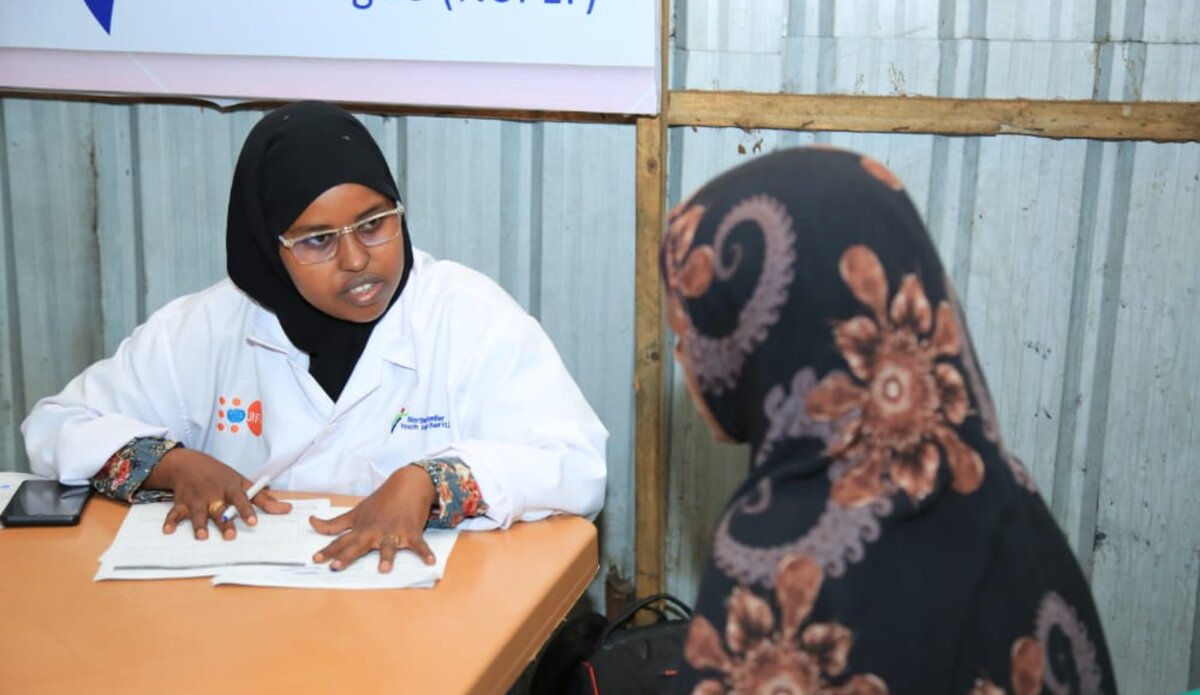
Mogadishu – One morning in 2011, Fatima Ismail Mohamed was seated in her 8th grade classroom in the Somali capital of Mogadishu waiting for the lesson to begin, when suddenly her friend seated next to her dropped to the ground, writhing in pain.
At the time, she did not understand what was happening.
As she progressed through middle school, Ms. Mohamed witnessed more of her friends facing the same pain and distress during their menstrual cycle.
Eventually, she learned that their painful experiences were the result of female genital mutilation (FGM), which can lead to painful menstruation, irregular menses and difficulty passing menstrual blood.
This knowledge set Ms. Mohamed on a path towards activism for the rights and wellbeing of Somali girls and women.
“I saw too many of my friends suffering, and I knew I had to do something,” she recalls. “FGM is a human rights violation against girls that causes them to suffer for the rest of their lives – it is a crime that deprives girls of their basic rights and dignity.”
But the practice of FGM – which involves the partial or total removal of the female external genitalia or other injury to the female genital organs for non-medical reasons – is a long-running one in Somalia, and even though she was young, Ms. Mohamed knew that she had to be well-prepared for the battles ahead.
“I knew that my fight against this age-old harmful practice needed to start with a credible education that would provide me with the right tools and skills to be an effective advocate,” she notes.
Ms. Mohamed was born in Mogadishu in 1998, at a time when pursuing education was difficult for girls, partly due to the civil war but also due to traditions that perpetuated the belief that girls would marry young and start families and, therefore, education was not necessary.
Despite the challenges, and with support from her family, she persevered. She graduated from high school in 2015, and went on to pursue tertiary education. She received her bachelor’s degree in medical laboratory sciences from Al-Hilaal University in 2019 and another bachelor’s degree, this time in nutrition and dietetics, from the Capital University of Somalia in 2022.
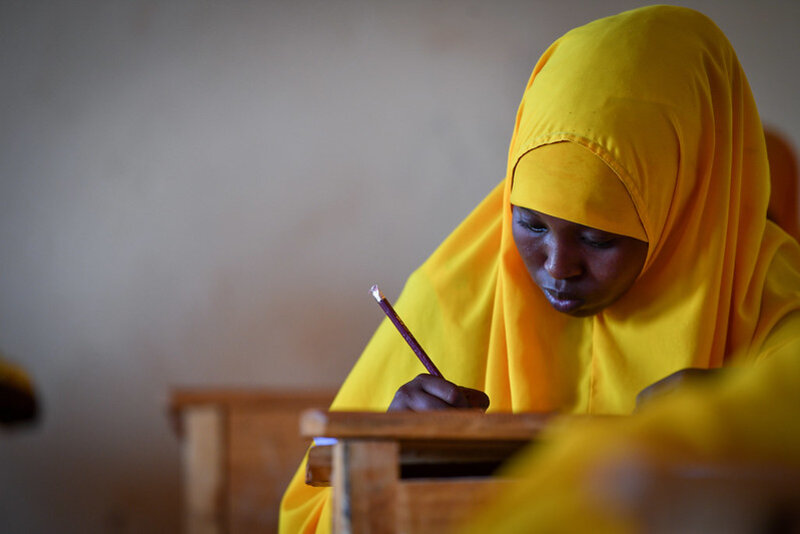
From classrooms to camps
While pursuing her education, Ms. Mohamed remained steadfast in her commitment to become an advocate against FGM.
Outside of the classroom, she volunteered as a midwife in local hospitals and also conducted information sessions with girls living in camps for internally displaced people (IDPs) on the outskirts of Mogadishu. In the sessions, she would explore the impact of FGM on the attendees, and provide survivors with a safe space to share their experiences and concerns.
“Hearing their stories motivated me to encourage parents to protect their daughters from the practice of FGM,” she says. “I speak with both mothers and fathers, pleading with them to shield their daughters from this harmful tradition.”
But it was not just family members with whom the 25-year-old activist had to deal with.
Tackling the issue meant also engaging with traditional midwives working in the IDP camps – a tightknit group – and trying to convince them to stop performing the operation.
“It was not always easy to persuade women who had been performing FGM for years to stop because cultural norms and beliefs that necessitate FGM, such as ensuring the purity of the girl, were widespread,” Ms. Mohamed says.
“I sat down with some of these traditional midwives and explained to them the life-long pain they were causing to some of these girls,” she adds. “It was difficult to convince them to change because it is ingrained in our culture that pain is part of being a woman.”
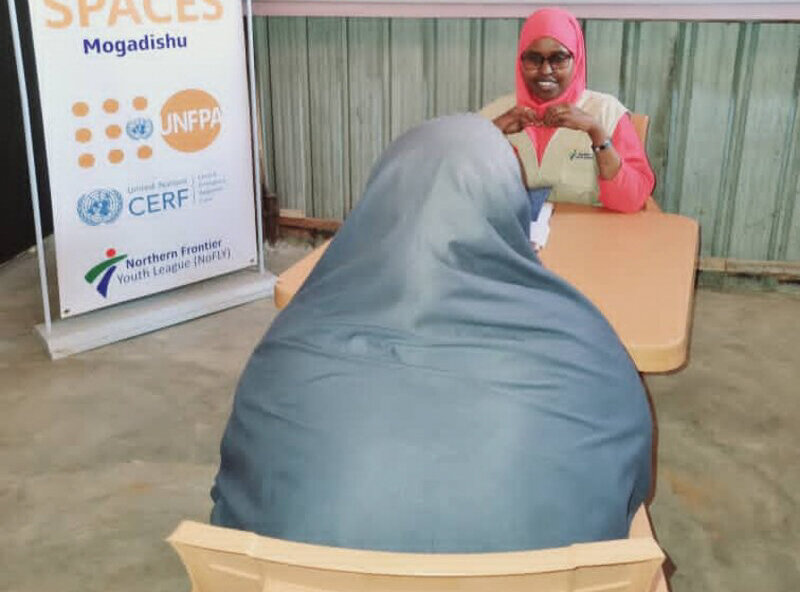
Stories of survivors
Ms. Mohamed’s dedication to the challenge of ending FGM in Somalia prompted her to write a book on the issue – ‘Hadimo Haween’ – which was published in 2022.
“I wrote the book because I saw the severity of the situation women are facing, especially in IDP camps on the outskirts of Mogadishu. It covers incidents I documented over five years, from 2016 to 2021, including numerous first-hand stories of survivors about the impact of FGM on their lives,” she says.
“I believe this book will serve as a valuable resource and a legacy for future generations to eliminate this practice in Somalia, and possibly elsewhere in the world,” says Ms. Mohamed. “It is necessary to address the cultural beliefs and attitudes that support the practice. FGM is one of the many expressions of power and control over girls’ and women’s bodies and their sexuality. It is a gendered and harmful practice and needs to be understood as such and stopped.”
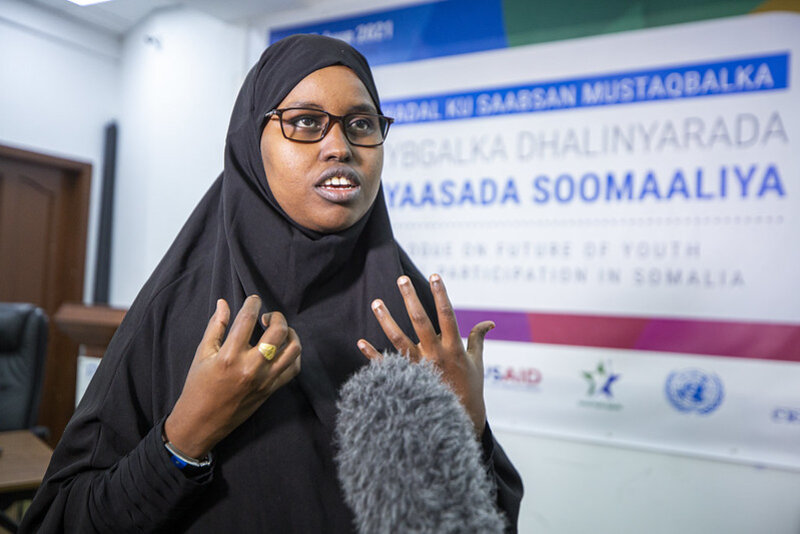
Gender-based violence
Ms. Mohamed’s work on ending FGM exposed her to other challenges that Somali women face, especially gender-based violence (GBV).
According to the United Nations, violence against women and girls remains the most pervasive human rights violation around the world. Already heightened by the COVID-19 pandemic, its prevalence is now being further increased by the intersecting crises of climate change, global conflict, and economic instability.
In Somalia, in addition to FGM, GBV is another harrowing reality that deeply affects the daily lives of many women and girls. The UN Population Fund (UNFPA) has noted that, from 2019 to 2022, a staggering 74 per cent of survivors accessing GBV prevention and support services were IDPs, with 93 per cent of them being female, and with the current situation further exacerbated by Somalia’s ongoing drought.
According to data from UNFPA, 2023 saw a five per cent increase in reported rape cases in February compared to January. The data also showed a six per cent increase in reported cases of intimate partner violence for February compared to January, and a four per cent increase overall for 2023.
Working with organizations such as the Ifrah Foundation, a non-governmental organisation (NGO) focused on the eradication of FGM, Ms., Mohamed provided GBV prevention training to community members as well as safe spaces and counselling services for survivors. She currently works with the Northern Frontier Youth League (NoFYL), an NGO whose primary focus is supporting education, providing protection to vulnerable populations, combating GBV, and improving healthcare services.
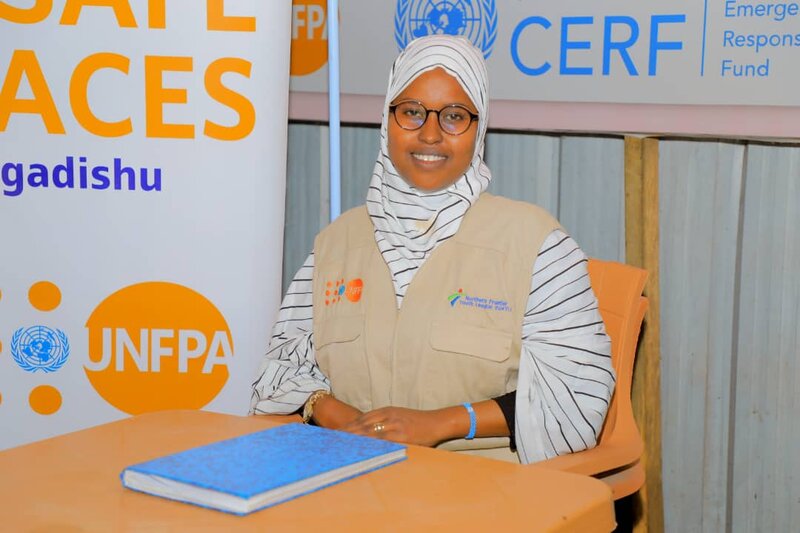
“With NoFYL I work on a variety of projects, including managing GBV cases and providing counselling and psychosocial support to survivors,” Ms. Mohamed says.
In her engagement with GBV survivors, she has been confronted with the harsh reality of the countless women who have suffered at the hands of their abusers, both within and outside their families.
Ms. Mohamed recalls one incident: “A story that touched my heart early this year was one of an 18-year-old girl who lives in an IDP camp in Mogadishu. She was raped and is now eight months pregnant as a result; she told me how the rape affected her life.”
She says interacting with such survivors opened her eyes to the different forms of GBV being perpetrated on women and girls in Somalia.
“I gained a deeper understanding of the horrific nature of violence against women. Their stories demonstrate the devastating impact of rape, forced marriage and FGM,” Ms. Mohamed says. These conversations serve as a powerful reminder of why my work is so crucial, and strengthens my resolve to continue to fight for the rights of those women who face different forms of gender-based violence.
Long-term plans
To effectively contribute to the prevention of FGM and GBV, Ms. Mohamed is currently pursuing a master’s degree in health science with a focus on health services management.
She hopes to conduct research on sustainable solutions to issues faced by women and prepare herself for a leadership role in a local hospital.
“Women in Somalia face many challenges, particularly in fields such as healthcare, where we lack opportunities compared to men. However, by pursuing my education and enhancing my skills and knowledge, I am confident that I can make a greater difference in the lives of Somali women,” says Ms. Mohamed.
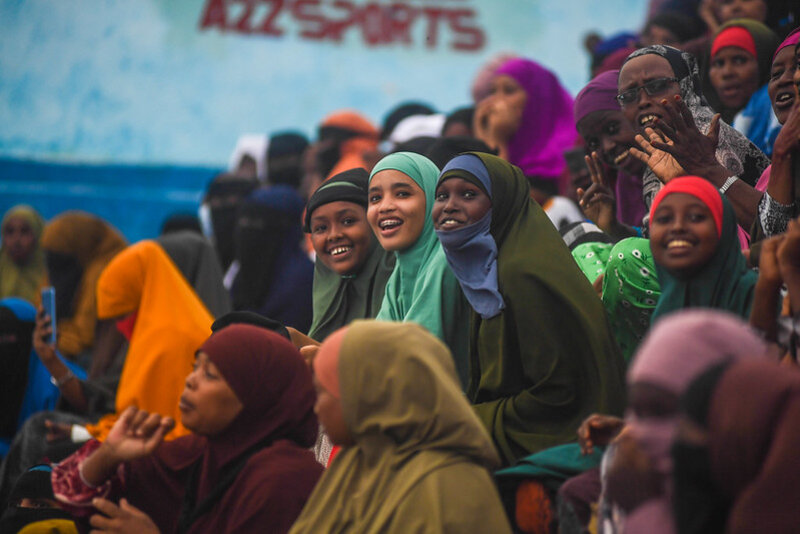
Prevalent practice
Globally, more than 200 million women and girls live with the consequences of FGM.
In Somalia, 99 percent of girls and women between the ages of 15 and 49 have undergone the procedure, with the majority being cut between the ages of five and nine, according to the 2020 Somali Health and Demographic Survey.
Girls and women who undergo FGM often experience long-term health consequences, including scarring, cysts, abscesses, and other tissue damage, infertility, and increased susceptibility to infections. They may experience difficulty and pain when they menstruate, urinate, or have sexual intercourse.
Furthermore, the consequences go far beyond the physical. FGM marginalises women and reinforces gender inequality by perpetuating harmful gender stereotypes that limit women’s potential.
UNFPA notes that, despite UN resolutions calling for the elimination of FGM, the practice remains near universal in Somalia, with recent estimates indicating that more than 2.1 million girls in Somalia are at risk of FGM between 2015 and 2030.
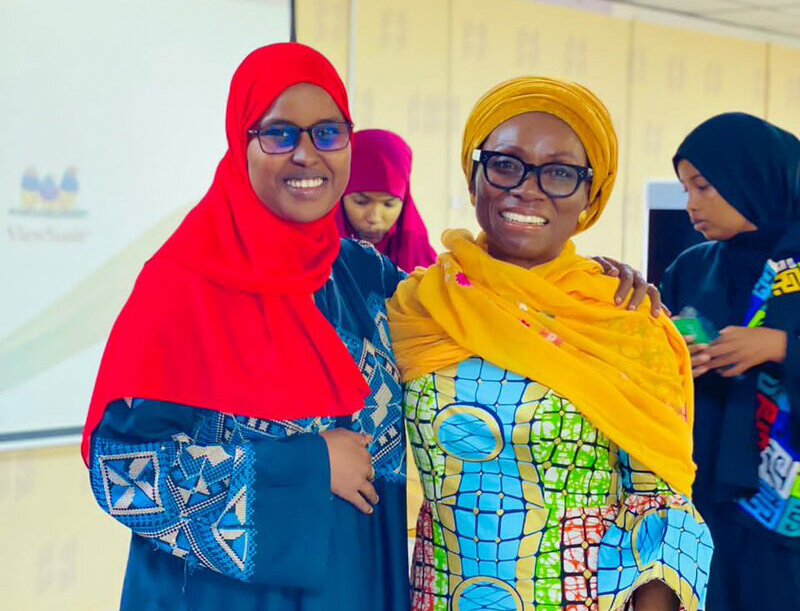
In Somalia, UNFPA works with Ms. Mohamed and others like her to address the needs of women and girls who have been impacted by FGM and other forms of GBV by providing them with safe spaces, health care and psychosocial services.
In addition, UNFPA and the United Nations Children’s Fund (UNICEF) are working together to end FGM within one generation. This initiative is linked to SDG 5, which calls for the end of all harmful practices by 2030.
To achieve SDG 5, the UNFPA-UNICEF programme has adopted a multi-faceted approach. First, it seeks to shift social norms in affected communities by raising awareness about the harmful effects of FGM and promoting alternative practices. Second, it collaborates with governments to put in place viable national response systems to prevent and address cases of FGM. Lastly, it prioritizes building a global movement of allies who are committed to eliminating the practice of FGM.
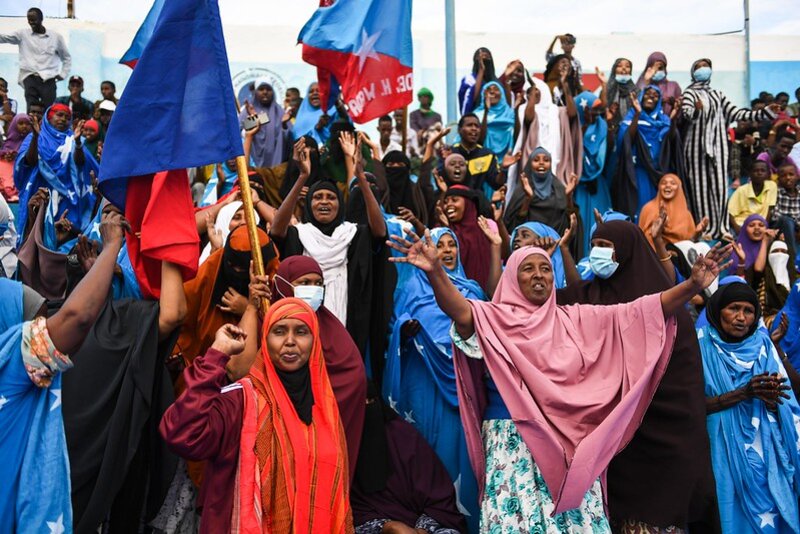
Source: UNSOM


